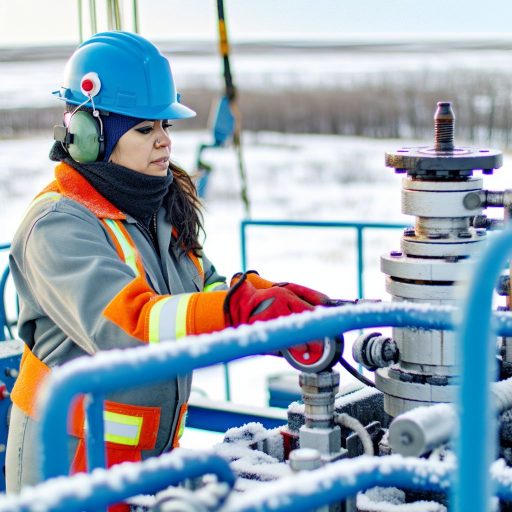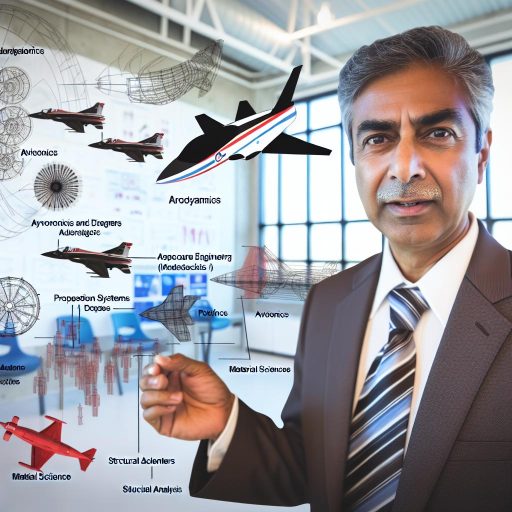Understanding the Importance of Networking in the Petroleum Industry
The Role of Networking in Career Advancement
Networking plays a crucial role in advancing careers in the petroleum industry.
It opens doors to new opportunities and collaborations.
Additionally, it helps professionals stay updated on industry trends.
Strong connections often lead to job referrals and insider information.
As a result, networking can directly influence career growth.
Building Relationships with Industry Peers
Establishing relationships with peers enhances knowledge sharing.
It fosters an environment of mutual support within the industry.
Moreover, peer relationships can lead to lifelong friendships.
These connections often prove invaluable in challenging times.
Accessing Expert Insights and Resources
Networking allows professionals to tap into expert insights.
Industry leaders often share valuable information through networking.
Such insights can provide a competitive edge for professionals.
Furthermore, networking links individuals to resources and tools.
These can facilitate project success and innovation.
Understanding Market Dynamics
Networking helps professionals understand market dynamics better.
Discussions with industry contacts reveal emerging trends.
This knowledge is crucial for strategic decision-making.
Connections also allow professionals to gauge competitor strategies.
Ultimately, this understanding leads to better business outcomes.
Enhancing Professional Reputation
Networking enhances one’s professional reputation in the industry.
A positive reputation attracts future partnerships and opportunities.
Active networking demonstrates commitment to the field.
Additionally, being visible in industry circles boosts credibility.
This can result in speaking engagements and leadership roles.
Effective networking is vital for petroleum engineers.
Unlock Your Career Potential
Visualize a clear path to success with our tailored Career Consulting service. Personalized insights in just 1-3 days.
Get StartedIt directly influences career success and professional growth.
By building relationships, accessing insights, and understanding markets, professionals thrive.
Identifying Key Networking Opportunities and Events for Petroleum Engineers
Industry Conferences
Industry conferences serve as prime networking opportunities.
Events like the Offshore Technology Conference attract many professionals.
Here, engineers can connect with peers and industry leaders.
Attending presentations can provide insightful discussions and connections.
Make sure to participate in breakout sessions for smaller networking groups.
Professional Societies and Organizations
Joining professional societies is a strategic move for petroleum engineers.
Organizations like the Society of Petroleum Engineers offer various resources.
Membership often comes with access to events tailored for networking.
These societies facilitate local chapter meetings and conferences.
Engaging with these groups increases visibility in the industry.
University Alumni Networks
Your university’s alumni network can be a valuable resource.
Many alumni are eager to connect with recent graduates.
Look for alumni events or online community forums to engage.
Sharing experiences can lead to job opportunities and mentorship.
Networking with alumni helps to build lasting professional relationships.
Social Media Groups
Social media platforms host numerous industry-related groups.
LinkedIn is particularly effective for professional networking.
Join groups that focus on petroleum engineering and participate actively.
Comment on posts and share your insights to build credibility.
This online presence can attract opportunities in the industry.
Workshops and Training Sessions
Participating in workshops can enhance both skills and networks.
Training sessions often draw professionals eager to learn and collaborate.
Engagement in such environments encourages meaningful conversations.
Look for workshops hosted by professional organizations or companies.
These settings foster connections with like-minded individuals.
Building a Strong Personal Brand
Define Your Expertise
Identify your key skills and areas of expertise.
Focus on what makes you unique in the petroleum engineering field.
Clearly articulate your strengths in conversations.
Consider how your background enhances your professional value.
Create a Professional Online Presence
Build a polished LinkedIn profile tailored to petroleum engineering.
Include a professional photo that reflects your personal brand.
Write a compelling summary that highlights your achievements.
Engage with industry-related content by sharing and commenting.
Network Effectively
Join professional organizations related to petroleum engineering.
Attend industry conferences and participate in discussions.
Connect with peers and leaders on networking platforms.
Follow up with meaningful interactions after initial meetings.
Showcase Your Knowledge
Share articles and insights relevant to your field on social media.
Consider writing blog posts or papers on current industry trends.
Incorporate your personal experiences to engage your audience.
Notably, attend workshops to present your knowledge.
Seek Mentorship and Collaborations
Find a mentor who shares your professional interests.
Engage in collaborative projects with fellow engineers.
Exchange ideas and feedback to enhance personal growth.
This will also expand your professional network.
Learn More: Mechatronics Engineering in Canadian Manufacturing
Leveraging Social Media Platforms for Professional Networking
Choosing the Right Platforms
Selecting the appropriate social media platform is essential.
LinkedIn is a popular choice among engineers and professionals.
On LinkedIn, you can connect with industry peers and leaders.
Facebook and Twitter can also play effective roles.
Use these platforms for informal networking and industry discussions.
Creating a Professional Profile
Your profile is your digital business card.
Include a professional photo that represents you well.
Write a compelling summary of your expertise and experience.
Details about your projects can engage potential contacts.
Remember to keep your contact information up to date.
Engaging with Industry Content
Regularly sharing valuable content showcases your expertise.
Post articles, blogs, or updates relevant to petroleum engineering.
Ask questions to initiate discussions in your posts.
Comment on industry trends to increase your visibility.
This strategy builds your reputation as a thought leader.
Joining Relevant Groups and Communities
Becoming a member of groups amplifies your networking reach.
Join groups focused on petroleum engineering and energy sectors.
Active participation in discussions enhances your credibility.
Collaborate with other professionals on shared projects.
Use group events to create meaningful connections.
Networking Through Virtual Events
Virtual conferences and webinars offer excellent networking opportunities.
Engage in chats and Q&A sessions to connect with speakers.
Follow up with attendees to discuss insights and ideas.
Use social media to share your experiences during these events.
This approach can lead to sustainable professional relationships.
Find Out More: Day-to-Day Life of a Petroleum Engineer Explained
Effective Communication Skills for Networking Success
Importance of Active Listening
Active listening enhances your understanding of others.
It encourages meaningful conversations and relationships.
Focus on the speaker and respond thoughtfully.
Summarize what they say to show comprehension.
This practice builds trust and rapport.
Mastering Your Introduction
A strong introduction sets a positive tone for networking.
Clearly state your name and current position.
Share a brief professional background.
Highlight your interest in the petroleum industry.
This approach captures attention and invites dialogue.
Utilizing Non-Verbal Communication
Non-verbal cues are vital in networking situations.
Maintain eye contact to convey confidence.
Your body language should be open and approachable.
Smile to create a welcoming atmosphere.
These cues enhance your verbal communication.
Asking Open-Ended Questions
Open-ended questions foster engaging discussions.
Encourage others to share experiences and insights.
This strategy shows your interest in their perspectives.
Avoid simple yes-or-no questions to promote depth.
For example, ask about their projects or challenges.
Following Up After Networking Events
A timely follow-up reinforces your connection.
Send a thank-you email within 24 hours.
Reference your conversation to jog their memory.
Include an invitation for further discussion.
This effort demonstrates professionalism and interest.
See Related Content: Exploring Job Opportunities in Aerospace Engineering

Developing a Networking Strategy
Setting Goals
Begin by defining your networking goals clearly.
Consider what you aim to achieve through networking.
Your objectives will guide your interactions.
For instance, you might seek mentorship opportunities.
You may also wish to expand your professional contacts.
Having a clear vision will enhance your focus.
Identifying Key Contacts
Identify industry professionals who align with your goals.
Use LinkedIn to find relevant connections.
Attend industry conferences and seminars regularly.
These events offer valuable networking opportunities.
Engage with alumni from your university as well.
Alumni can provide insights and connections.
Initiating Conversations
Approach professionals with confidence and enthusiasm.
Start by introducing yourself and your background.
Express genuine interest in their work and experiences.
Ask open-ended questions to stimulate conversation.
Listen actively to understand their perspectives.
This builds rapport and fosters meaningful connections.
Following Up
After your initial meeting, follow up promptly.
Send a personalized message expressing appreciation.
Reference specific points from your conversation.
This shows you value their time and insights.
Maintain regular communication to strengthen relationships.
Share articles or resources relevant to their interests.
Reviewing Your Networking Progress
Periodically assess your networking efforts.
Evaluate whether you are achieving your goals.
Adjust your strategies based on your experiences.
Seek feedback from trusted contacts to improve.
Stay adaptable as your networking needs may change.
Continuous evaluation enhances your overall effectiveness.
Learn More: Internship Tips for Aspiring Biomedical Engineers
Utilizing Professional Organizations and Associations in the Petroleum Sector
Importance of Professional Memberships
Becoming a member of professional organizations benefits your career significantly.
These memberships offer valuable resources and networking opportunities.
For instance, organizations like the Society of Petroleum Engineers facilitate collaboration among professionals.
Additionally, they provide access to industry publications and conferences.
Maximizing Networking Opportunities
Engage actively in events hosted by professional societies.
Attend local meetings and annual conferences to expand your network.
Participating in workshops and seminars helps you meet industry leaders.
Make sure to introduce yourself and share your contact information.
Leveraging Online Platforms
Many organizations offer online platforms for members to connect.
Utilize these platforms to participate in discussions and forums.
Engage with others by sharing insights and asking questions.
Additionally, consider joining relevant groups on social media platforms.
Staying Updated on Industry Trends
Professional organizations often produce newsletters and reports.
Subscribe to these publications to stay informed on industry developments.
Understanding current trends can position you as a knowledgeable professional.
Furthermore, this knowledge fosters more meaningful conversations with peers.
Getting Involved in Committees and Special Interest Groups
Joining committees allows members to participate more actively.
Committees often work on specific challenges facing the industry.
By contributing your knowledge, you can establish your expertise.
Moreover, special interest groups focus on niche areas, enhancing your skills.
Building Relationships Through Mentorship
Seek mentorship opportunities within professional organizations.
A mentor can provide guidance and valuable insights into your career path.
Additionally, consider mentoring others to reinforce your knowledge.
This reciprocal relationship helps build lasting professional connections.
Best Practices for Building and Maintaining Industry Relationships
Leverage Professional Associations
Join industry-specific professional associations without delay.
These organizations often host networking events and conferences.
Engage actively in conferences to meet potential contacts.
Follow up with individuals you meet at these events.
Utilize Social Media Strategically
Platforms like LinkedIn are crucial for professionals.
Create a complete and compelling profile showcasing your skills.
Regularly share industry-related content to engage your network.
Participate in relevant discussions to increase visibility.
Attend Workshops and Training Sessions
Take advantage of workshops that offer networking opportunities.
Interact with peers and industry leaders to foster connections.
Follow up with the people you meet after the session.
Build Genuine Connections
Focus on fostering authentic relationships over transactional ones.
Show genuine interest in others’ work and challenges.
Offer assistance or insights whenever possible.
Create a supportive professional network that thrives on collaboration.
Maintain Regular Communication
Stay in touch with your connections periodically.
Share updates about your career or projects of mutual interest.
Schedule casual catch-ups over coffee to strengthen bonds.
Engage in Community Efforts
Participate in community outreach or volunteer initiatives.
Collaborate with others from the industry on these projects.
This builds relationships based on shared values and goals.
Mentorship Opportunities
Seek mentorship from experienced professionals in your field.
Likewise, consider mentoring less experienced colleagues.
This creates a two-way street of networking and knowledge sharing.
Additional Resources
Society of Petroleum Engineers (SPE) | Oil & Gas Membership …




